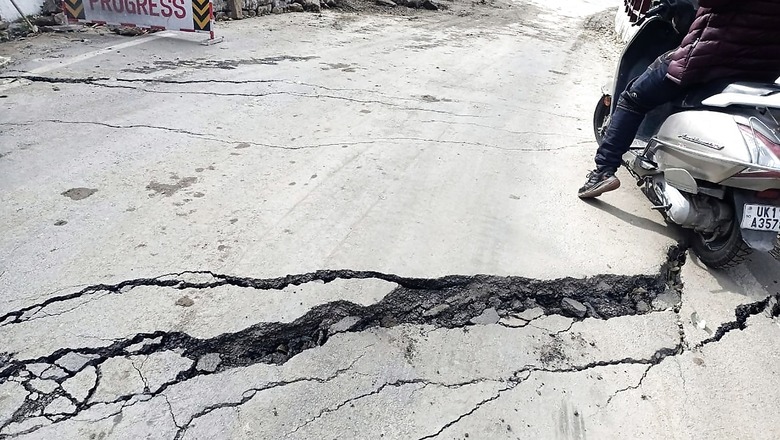
views
Nine states in India, including Bihar, Uttar Pradesh, Maharashtra and Punjab, are among the world’s top 50 regions at risk of damage to the built environment due to climate change hazards, according to a new report published on Monday.
Cross Dependency Initiative (XDI), part of a group of companies committed to quantifying and communicating the costs of climate change, calculated the physical climate risk to the built environment in over 2,600 states and provinces around the world in 2050.
Built environment refers to aspects of our surroundings that are built by man to support human activity like homes and work places.
The XDI Gross Domestic Climate Risk data set compared these territories according to modelled projections of damage to buildings and properties from extreme weather and climate change such as flooding, forest fires, heatwave and sea level rise.
Asia dominates the list of provinces at risk with more than half (114) of the top 200 in 2050 in this region, with special focus on China and India.
XDI noted that entities not on the list are not “low risk” and said many states and provinces facing high risk from extreme weather climate change hazards are not appearing at the top of this ranking due to their lower number of residential, commercial and industrial buildings.
According to the analysis, 80 percent of the top 50 most at-risk states and provinces in 2050 are in China, US and India. After China, India has the highest number of states (9) in the top 50, which include Bihar (22nd spot), Uttar Pradesh (25), Assam (28), Rajasthan (32), Tamil Nadu (36), Maharashtra (38), Gujarat (48), Punjab (50) and Kerala (52), it said.
Assam would see the maximum increase — over 330 percent by 2050 as compared to 1990 — in climate risk to the built environment.
Pakistan also has multiple provinces in the top 100, including Sindh province. Devastating flooding between June and August 2022 affected 30 per cent of the area of Pakistan and partially or fully damaged more than nine lakh houses in Sindh province.
This is the first time there has been a physical climate risk analysis focused exclusively on the built environment, comparing every state, province and territory in the world.
Highly developed and globally significant Asian economic hubs in the top 100 for damage risk include Beijing, Jakarta, Hồ Chí Minh City, Taiwan and Mumbai.
In China, which dominates the ranking, at-risk states and provinces are concentrated in the globally-connected east and south, along the floodplains and deltas of the Yangtze and Pearl rivers. In the US, the economically important states of California, Texas and Florida would be most affected.
Other countries with multiple provinces and states in the top 50 include Brazil, Pakistan and Indonesia. In Europe, high-ranking states encompass the cities of London, Milan, Munich and Venice.
“In terms of overall scale of damage risk, and in terms of risk escalation, Asia has the most to lose as climate change extreme weather increases, and the most to gain from preventing worsening climate change and accelerating climate resilient investment. This is the most sophisticated global analysis of physical climate risk to date, offering a breadth and depth and granularity on a scale we haven’t seen before.Now – for the first time – the finance industry can directly compare Mumbai, New York and Berlin using a like-for-like methodology,” said XDI CEO Rohan Hamden.
The report is particularly significant for investors, as extensive built infrastructure generally overlaps with high levels of economic activity and capital value.
Read all the Latest India News here


















Comments
0 comment